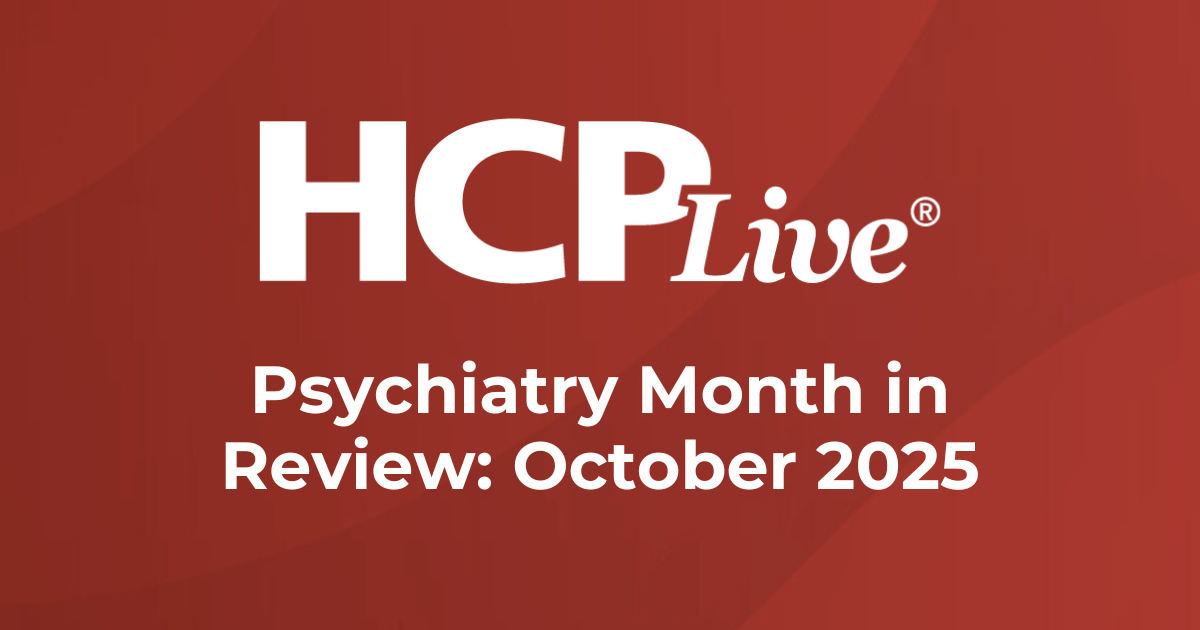Science
October 2025 Sees Groundbreaking Advances in Psychiatry Treatments

October 2025 marked a significant month in psychiatry, with multiple advancements and research findings that may reshape treatment approaches. The U.S. Food and Drug Administration (FDA) approved UZEDY (risperidone extended-release injectable suspension) for the maintenance treatment of adults with bipolar I disorder. This announcement by Teva Pharmaceuticals on October 10, 2025, represents a major step forward in long-acting therapies for this condition.
UZEDY, previously authorized for schizophrenia in 2023, is notable for being the first subcutaneous formulation of risperidone that uses SteadyTeqTM technology for controlled release. This approval was based on phase 3 studies, namely the RISE and SHINE trials, alongside Model-Informed Drug Development (MIDD) methodologies. Patients receiving a single dose of UZEDY reached therapeutic blood concentrations within a window of 6 to 24 hours, showcasing the treatment’s rapid efficacy.
Innovative Therapies on the Horizon
In further developments, the phase 3 CONVOKE trial presented by Gregory W. Mattingly, MD, from Washington University in St. Louis, revealed promising results for CT-155, an investigational digital therapeutic designed to alleviate negative symptoms of schizophrenia. This 16-week study demonstrated a substantial improvement in the CAINS-MAP score, with CT-155 showing a 6- to 8-point enhancement compared to just 4.2 points in the control group. The therapy aims to complement traditional antipsychotics by providing interactive psychosocial interventions that address defeatist beliefs and motivational deficits, thereby widening access to effective treatment options.
A comprehensive meta-analysis led by Toby Pillinger, PhD, at King’s College London, investigated cardiometabolic side effects across 30 antidepressants. Analyzing data from 151 randomized controlled trials involving over 58,000 patients, the study uncovered significant differences in weight, heart rate, and blood pressure linked to various antidepressants. For instance, medications such as maprotiline and amitriptyline were associated with notable weight gain, while fluoxetine and agomelatine correlated with weight loss. These insights can guide clinicians in selecting antidepressants that minimize metabolic risks for susceptible patients.
Emerging Research and Dietary Impacts
A post-hoc analysis by Clotilde Guidetti, MD, at Massachusetts General Hospital, highlighted the potential of esmethadone (REL-1017), developed by Relmada Therapeutics, in treating patients with major depressive disorder (MDD) who experience antidepressant tolerance. The analysis from the Reliance phase 3 trial indicated that patients with tachyphylaxis treated with esmethadone had a statistically significant improvement in MADRS scores, outperforming placebo results. These findings suggest esmethadone may serve as a viable adjunctive therapy for those facing challenges in managing severe depression.
In another intriguing study, Sharmili Edwin Thanarajah, MD, from University Hospital Frankfurt–Goethe University, explored the link between soft drink consumption and MDD. Utilizing data from the Marburg-Münster Affective Cohort, which included 405 patients with MDD and 527 controls, the research indicated that soft drink intake predicted MDD diagnosis, particularly affecting women more significantly. The findings suggest that changes in gut microbiota, specifically increased levels of Eggerthella, may play a role in this association.
The month also saw a randomized trial from Shandong Mental Health Center, which revealed that magnetic seizure therapy (MST) may match the efficacy of electroconvulsive therapy (ECT) in treating adolescents with MDD while offering superior cognitive protection. Among 120 participants, ECT resulted in slightly greater reductions in depression scores, but MST was noted for its improvements in memory and executive function, alongside fewer cognitive complaints and adverse events. The researchers concluded that MST could be a safer alternative to ECT, potentially preserving neurodevelopment and reducing suicide risk in adolescent patients.
As October concluded, these pivotal advancements and findings underscore the ongoing evolution in psychiatric treatment, with a focus on both innovation and patient safety. The continued exploration of therapeutic options and their implications for mental health care holds promise for improving outcomes for those affected by psychiatric disorders.
-

 Science3 weeks ago
Science3 weeks agoIROS 2025 to Showcase Cutting-Edge Robotics Innovations in China
-

 World3 weeks ago
World3 weeks agoBravo Company Veterans Honored with Bronze Medals After 56 Years
-

 Lifestyle3 weeks ago
Lifestyle3 weeks agoStone Island’s Logo Worn by Extremists Sparks Brand Dilemma
-

 Politics3 weeks ago
Politics3 weeks agoJudge Considers Dismissal of Chelsea Housing Case Citing AI Flaws
-

 Health3 weeks ago
Health3 weeks agoStartup Liberate Bio Secures $31 Million for Next-Gen Therapies
-

 Health3 weeks ago
Health3 weeks agoTop Hyaluronic Acid Serums for Radiant Skin in 2025
-

 Top Stories3 weeks ago
Top Stories3 weeks agoIndonesia Suspends 27,000 Bank Accounts in Online Gambling Crackdown
-

 Sports3 weeks ago
Sports3 weeks agoMel Kiper Jr. Reveals Top 25 Prospects for 2026 NFL Draft
-

 World3 weeks ago
World3 weeks agoHoneywell Predicts Record Demand for Business Jets Over Next Decade
-

 Lifestyle3 weeks ago
Lifestyle3 weeks agoMary Morgan Jackson Crowned Little Miss National Peanut Festival 2025
-

 Science3 weeks ago
Science3 weeks agoArizona State University Transforms Programming Education Approach
-

 Politics3 weeks ago
Politics3 weeks agoNew Jersey Voters Urged to Register Ahead of November Election









